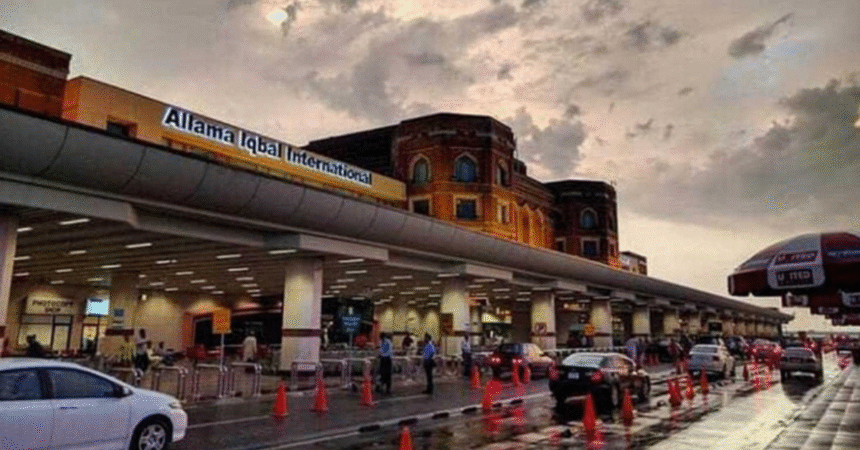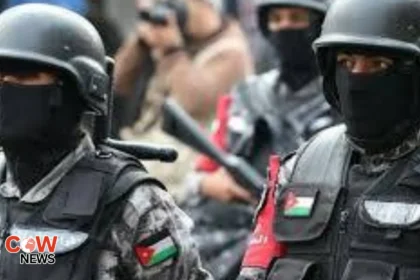Introduction:
In a major crackdown at Lahore’s Allama Iqbal International Airport, the Anti-Narcotics Force (ANF) successfully intercepted a smuggling attempt by a passenger en route to Saudi Arabia. The suspect was found with 28 capsules filled with ice (crystal meth) in his stomach. Alongside this, two other individuals were arrested for trying to smuggle 2.5 kilograms of drugs to Dubai. This raid was part of a broader nationwide operation that led to 11 arrests and the recovery of 212 kilograms of narcotics, including hashish, opium, and pills from various locations across Pakistan. Notably, significant quantities of drugs were seized from Kasur and Lahore, demonstrating the effectiveness of this nationwide anti-narcotics effort.
The ANF’s comprehensive operations extended to Islamabad, where a suspect was apprehended near a university, reportedly selling drugs to students. Investigations are ongoing, with cases registered under the Anti-Narcotics Act. This raid highlights the growing vigilance of authorities in curbing drug trafficking at critical transit points, especially airports, which have become a major focus in the war against drugs.
Broader Context of Drug Trafficking in Pakistan
Pakistan has become a significant route for drug traffickers due to its strategic location between Afghanistan, a major source of opium, and countries in the Middle East and beyond. Over the years, anti-narcotics authorities have ramped up efforts to intercept drug smuggling attempts, particularly at airports, seaports, and border crossings.
Increased coordination between law enforcement agencies and international partners has resulted in more frequent seizures, such as this one in Lahore. The surge in crystal meth (ice) smuggling, especially through concealed methods like internal body transportation, has posed new challenges for anti-narcotics forces. However, these coordinated raids indicate that Pakistan is making significant strides in disrupting smuggling networks.
Drug trafficking in Pakistan has evolved with the introduction of synthetic drugs like crystal meth, posing a significant threat to public health. Methamphetamine, commonly known as “ice,” is highly addictive and often smuggled in innovative ways, such as swallowing capsules to evade detection. These drugs are not only trafficked abroad but also consumed within the country, leading to a rise in local addiction rates.
The economic and social consequences of drug trafficking in Pakistan are severe. Narcotics sales fund criminal activities, including terrorism and organized crime, which destabilize the region. The government’s counter-narcotics efforts, including increased funding and international collaboration, are essential in addressing both the domestic and international dimensions of the drug trade.
Public awareness and stricter penalties have become key aspects of Pakistan’s strategy to combat drug smuggling. Educational programs and community outreach initiatives aim to reduce drug abuse, while enhanced border security and specialized anti-narcotics task forces focus on intercepting large drug shipments before they leave the country. This multifaceted approach is crucial in tackling the complex challenges posed by drug trafficking networks.
Drug Smuggling Techniques and Challenges
The case at Lahore Airport is indicative of the growing sophistication of drug traffickers. Concealing drugs inside the body is not only dangerous but also difficult to detect without advanced scanning equipment. The ANF’s ability to uncover such attempts demonstrates their enhanced capability in surveillance and intelligence gathering. However, the scale of the problem remains immense.
Apart from meth, heroin, hashish, and opium continue to be smuggled in significant quantities. Smugglers are constantly evolving their methods, using everything from false bottoms in luggage to electronic devices, making it critical for authorities to stay ahead through the use of technology and intelligence networks.
Smugglers also exploit vulnerabilities in cargo and postal systems, using deceptive packaging or hidden compartments in goods. By doing so, they avoid direct personal searches and leverage high-volume transit routes to increase their chances of evading detection. This method poses a significant challenge for customs authorities, who must balance efficiency with thorough screening.
Furthermore, traffickers often adapt to law enforcement trends by utilizing newer technologies, including drones and encrypted communication. These tools allow them to bypass traditional checkpoints and evade authorities while coordinating international operations in real-time.
Addressing these sophisticated smuggling methods requires not only advanced equipment but also international intelligence sharing. Collaborative efforts between countries, supported by digital tracking systems and cross-border partnerships, are crucial to dismantling drug trafficking networks. Equipping frontline officers with the latest tools and training enhances their ability to detect concealed narcotics and stay ahead of traffickers’ evolving tactics.
Nationwide Anti-Narcotics Efforts
This raid in Lahore is part of a wider national initiative aimed at dismantling drug trafficking networks. The ANF regularly conducts operations in collaboration with other law enforcement agencies. In Kasur, authorities recently seized 20 kilograms of ice, while Lahore saw the recovery of 5 kilograms of opium. These operations are crucial in preventing the flow of drugs into Pakistan’s major cities, where consumption, particularly among young people, is on the rise.
Drug peddling in universities has also become a major concern. The Islamabad raid highlighted this, with one suspect confessing to selling drugs to students. This trend points to the increasing availability of drugs in educational institutions, a worrying sign that more preventive measures need to be taken.
Public Awareness and Education
While raids and arrests are important, public education and awareness campaigns are equally critical in combating drug abuse and trafficking. Schools, universities, and communities must be equipped with the knowledge to identify drug abuse and understand the risks associated with narcotics. This is especially important for younger generations, who are more vulnerable to falling into drug addiction.
Government initiatives that include public service announcements, rehabilitation centers, and stricter penalties for drug trafficking are essential in reducing both supply and demand. Moreover, educating people about the dangers of synthetic drugs like crystal meth, which have devastating effects on physical and mental health, can help curb usage.
The Role of Technology in Combating Drug Trafficking
Modern technology has become a valuable asset in the fight against drug trafficking. Airport scanners, sniffer dogs, and intelligence-sharing platforms have significantly improved the detection rate of drug smuggling attempts. Surveillance systems have also helped identify suspicious behavior and potential smuggling rings.
The use of digital tools extends beyond airports. Data analytics and predictive algorithms are now being deployed to analyze patterns in drug trafficking, helping authorities anticipate routes and uncover hidden networks. For example, customs officers can track suspicious flight patterns, while border authorities can use sensors to detect drug shipments hidden in cargo.
International Collaboration
Given the transnational nature of drug trafficking, international cooperation is key. Pakistan has long collaborated with neighboring countries, including Afghanistan and Iran, to tackle cross-border smuggling. Additionally, partnerships with global organizations like the United Nations Office on Drugs and Crime (UNODC) have played an important role in enhancing local capabilities.
These partnerships focus on training law enforcement officers, providing them with advanced detection tools, and sharing real-time intelligence. Cross-border raids and coordinated operations between countries help in dismantling smuggling networks that span multiple nations.
The recent raid at Allama Iqbal International Airport, where 28 ice-filled capsules were seized, is a testament to the ongoing efforts by Pakistan’s Anti-Narcotics Force to crack down on drug trafficking. The broader nationwide operations that followed further demonstrate the government’s resolve to dismantle drug networks.
As drug smuggling techniques become more sophisticated, it is vital that law enforcement agencies continue to innovate, invest in technology, and work closely with international partners to tackle this global challenge. Public awareness, combined with strong legal frameworks, will also play a critical role in ensuring that Pakistan remains vigilant in its fight against narcotics.
#DrugBust #AntiNarcotics #PakistanNews #AirportRaid #ANF #LahoreAirport #DrugTrafficking #CrystalMeth #StopDrugs #PublicAwareness #InternationalCooperation







